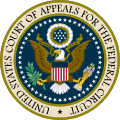Court Oder to Stop a Patent Infringer
 If an infringer copies your patented invention, a judge should make them stop, right? Not necessarily.
If an infringer copies your patented invention, a judge should make them stop, right? Not necessarily.
After the eBay case, patent owners are not entitled to automatic injunctions to stop infringement. Instead, the judge must determine whether the patent owner has suffered ‘irreparable injury’ from the infringement and whether money damages are adequate to compensate the patent owner, among other things. The eBay case made it much more difficult to obtain an injunction to stop infringement.
Injunctions are still available – they are just harder to get. As discussed in Genband v Metsawitch, decided July 10, 2017, a patent owner can prove ‘irreparable harm’ for an injunction to stop infringement if the patent owner can show that the infringement is causing the patent owner to lose sales.
The issue becomes complicated where the product is complex (say, a smart phone) and has many features. Did copying the specific patented feature cause the patent owner to lose sales, or was it some other feature of the infringing product or some other action of the infringer?
In the Apple v Samsung cases (Apple I, Apple II, Apple III and Apple IV), the Federal Circuit Court determined that to establish ‘irreparable harm’ for an injunction the patent owner must show some connection between the patented feature and the demand for the infringer’s product. For situations of complex products with many features and many buyers, the patent owner must show that the patented feature is one of several features that cause consumers to make purchasing decisions.
The effect of copying a patented feature on sales is a tougher matter to prove than it sounds. Nonetheless, the Federal Circuit has opened the door to patent infringement injunctions, a door that had been all but closed since 2006.
–Robert Yarbrough, Esq.

